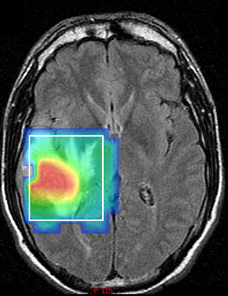
A new study published in PLOS ONE suggests that four types of brain tumours, and cancers that have spread to the brain, all generate and use energy with the same, specialised processes.
Using samples from almost 400 patients, the researchers from the Cancer Research UK Cambridge Institute listened in to the chemical chatter taking place inside the cell by measuring the levels of key chemicals in cells from each type of brain tumour. By comparing the conversations, the researchers made the surprising discovery that similar reactions were taking place in different tumour types.
The team used data from eTumour, a previous European research programme, on the chemical contents of 378 patient samples from five different types of brain tumours: glioblastomas, astrocytomas, meningiomas, oligodendrogliomas, and tumours that had spread to the brain, called brain metastases.
The results suggest that brain tumours adapt their chemical reactions in very similar ways to survive in the brain, despite starting in very different types of cells and regions.
Professor John Griffiths, co-lead researcher based at the Cancer Research UK Cambridge Institute, said: “The revelation that different types of brain tumours appear to be using similar tricks to survive was startling. The next step is to try and understand how these seemingly very different tumour types are able to adapt their energy production to grow. In the future, it might mean that we could develop drugs that specifically damage these survival mechanisms.”
Dr Madhu Basetti, co-lead researcher also based at the Cancer Research UK Cambridge Institute, said: “Our study is the first to use this approach to compare how different cancers use and produce energy, and look for similarities. The next steps are to investigate whether the same technique could be used to reveal more about how cancers control energy use.”
Dr Justine Alford, from Cancer Research UK, said: “Brain tumours are stubbornly hard to treat and we urgently need to find new approaches to tackling them. Research like this that reveals how brain tumours survive will help us find the disease’s weaknesses so we can exploit them. Cancer Research UK is prioritising finding new ways to treat brain tumours, and help more people survive the disease.”















